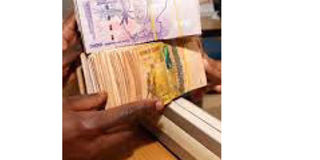Plug loopholes in tax collections

Over the last three financial years, tax revenue from international trade has taken a sharp dive to Shs6 trillion, down from Shs13 trillion.
Imports and domestic consumption have slowed down as a result of the impact of the coronavirus disease, hitting the country’s tax revenue.
This largely explains why Uganda Revenue Authority (URA) is now changing its gear to focus on domestic tax collection to meet its target.
With a steep revenue collection target of Shs21.8 trillion in the next financial year 2020/2021, URA has some real work to do. Of this, the tax authority is expected to raise tax revenue of Shs20.2 trillion and non-tax revenue worth Shs1.591 trillion.
Government, therefore, intends to widen the scope of the income tax withholding agents across all sectors with the view of broadening Uganda’s tax base.
But the timing may be unsuitable considering the current economic situation brought about by the Covid-19 pandemic. With huge job losses, the high rate at which many companies are either closing shop or struggling to keep afloat point to an economy that is tumbling.
According to the PwC Budget bulletin, the economy grew by 3.1 per cent in the financial year 2019/2020, which is significantly lower than the 6.8 per cent growth in financial year 2018/2019, mainly due to the triple effect of the Covid-19 pandemic, locust invasion and floods in parts of the country.
Businesses have also been forced to review their operations and keep afloat in the current global crisis. This has pushed them to review their cash flow and liquidity positions to address a sudden and significant reduction in revenues.
But how will URA meet its tax collection target?
In a crackdown aimed at improving domestic revenue collection, it is encouraging to note that the taxman will monitor high-net worth individuals whose lifestyles do not correspond to the taxes paid.
Expediting the payment of outstanding Value Added Tax (VAT) refunds worth Shs120.53 billion due to businesses accompanied by measures to limit fraud is also a step in the right direction.
URA could also set its eyes on sustained economic activities to widen the tax bracket. Much as government has set aside Shs690 billion to support Small and Medium Enterprises, it should also devise creative means of getting them to pay their fair share of taxes; thus bringing them into the tax fold.




